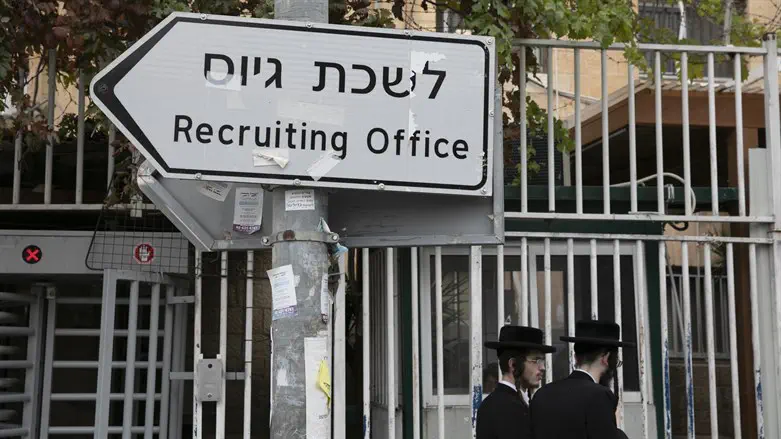State to Supreme Court: ‘Planning underway for immediate enlistment of haredim’/Bench Kvetchers
State responded to Supreme Court on recruitment of haredim: ‘Authorities are formulating a plan for gradual recruitment of haredim.’

The State responded to the Supreme Court on Wednesday, saying that the IDF and the Ministry of Defense are formulating action plans for the immediate recruitment of haredim, as well as actions that will also affect longer term recruitment.
Discussions examined various alternatives for preparing the security forces to accept members of the haredi community, taking into account the diverse complexities related to the size of the population, its characteristics, and the needs of the ongoing war.
The Supreme Court of Justice was provided an update that, “The responsible :-)))) authorities are working on a plan for the gradual recruitment of haredim into the IDF, and initial plans are due to be completed within several weeks. The state has emphasized that it will update the Supreme Court with the details, in anticipation of the discussion on appeals submitted on this issue.
Two weeks ago State Attorney, Gali Baharav-Miara, approved for the government to have separate representation in the Supreme Court on the Draft Law.
Approval was given after Cabinet Secretary Yossi Fuchs asked the Deputy State Attorney, Gil Limon, to authorize the government to have separate representation in the Supreme Court hearing on the petitions filed against the draft exemption for the haredi sector.
According to Fuchs, the Supreme Court of Justice avoided stipulating that haredim must be recruited according to the issued orders, and the answer submitted on behalf of the legal counsel – and not according to the Prime Minister's opinion – also stated that a supplementary affidavit must be submitted to the Supreme Court.
Fuchs mentioned Netanyahu's request to give the government 30 days to formulate agreements concerning the haredi draft, including the required administrative work, saying "The court has accepted the Prime Minister's request, and therefore any directive of the State Attorney to take action in order to recruit yeshiva students is contrary to the Supreme Court's decision."
"There is no way of bridging the fundamental gap between the State Attorney’s position and the government's position, both on the recruitment issue and the support issue, and it deems fit that in such a far-reaching public issue – even more so, in the midst of a war – separate legal representation for the government in these petitions must be approved," wrote Fuchs.
